May 11th, 2015 — 7:35am
After the ubiquitous chillie, the most important ingredient in Lao cuisine is smoke.
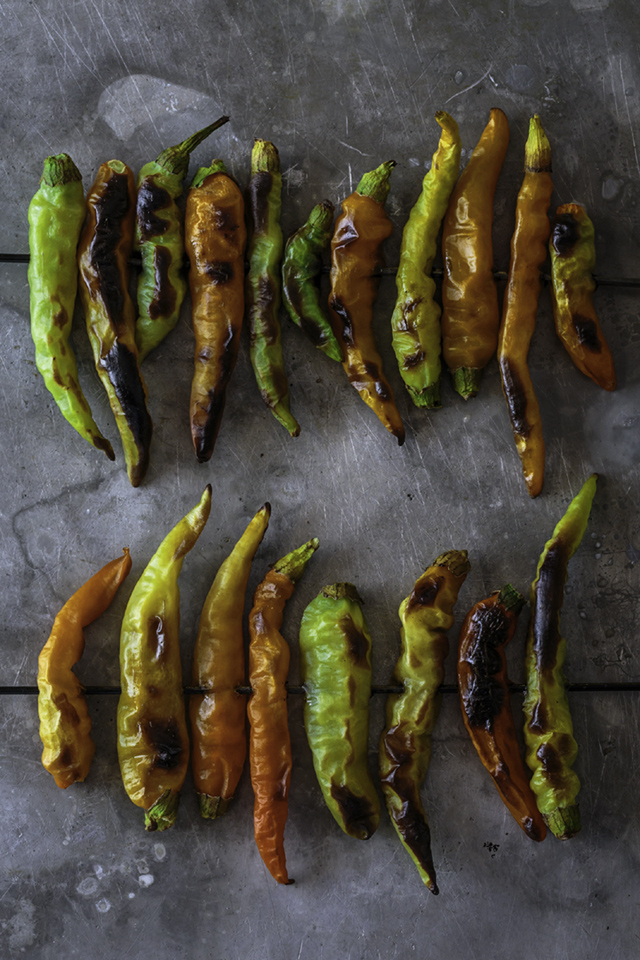
Combine the two and the result is culinary alchemy, infusing dishes with spice and deep charred flavours. Grilling over charcoal is an essential technique and is commonly used when preparing shallots, garlic, tomatoes, mushrooms, galangal, and lemongrass before adding them to jaew dips, soups and curries.
Comment » | food, places, Travel
March 11th, 2015 — 3:31am
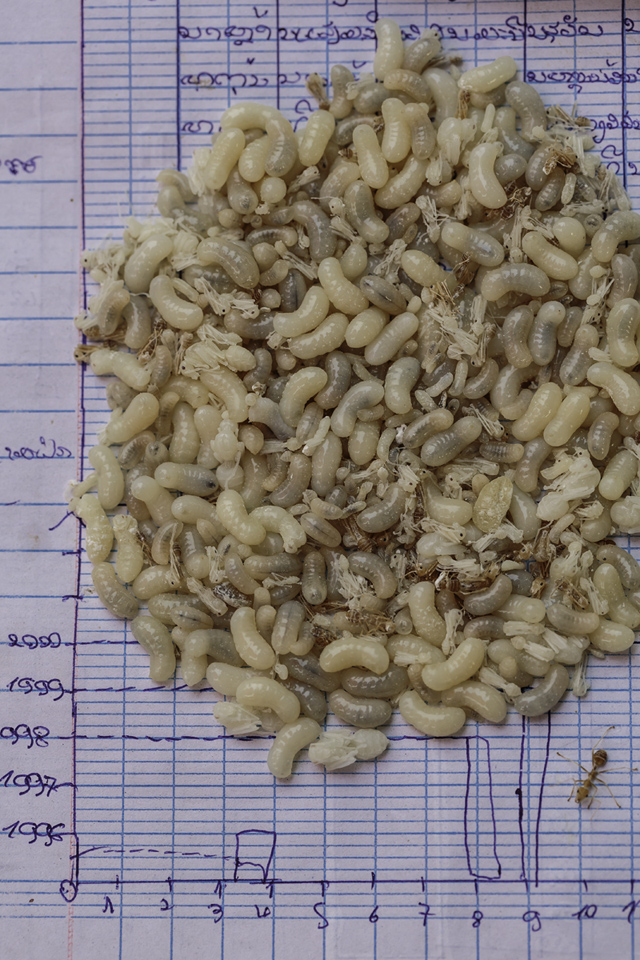
It’s ant egg season. The markets in Laos, north and northeastern Thailand have an abundance of them at the moment. A good source of protein, they are used in soups, curries and salads. The shots here were taken at stalls in the rural town of Pak Lay in Laos where ladies had their harvest of eggs laid out of pages ripped from on school books instead of banana leaves.

There were two types for sale, the more common plump red ant eggs known as kai mot daeng (top picture), and the smaller darker coloured kai mot hai (above). Both type of ant build their nests in trees. I really like the larger red ant eggs added Lao style soups. More on this dish in the near future.
Comment » | food, Travel
February 16th, 2015 — 10:21am
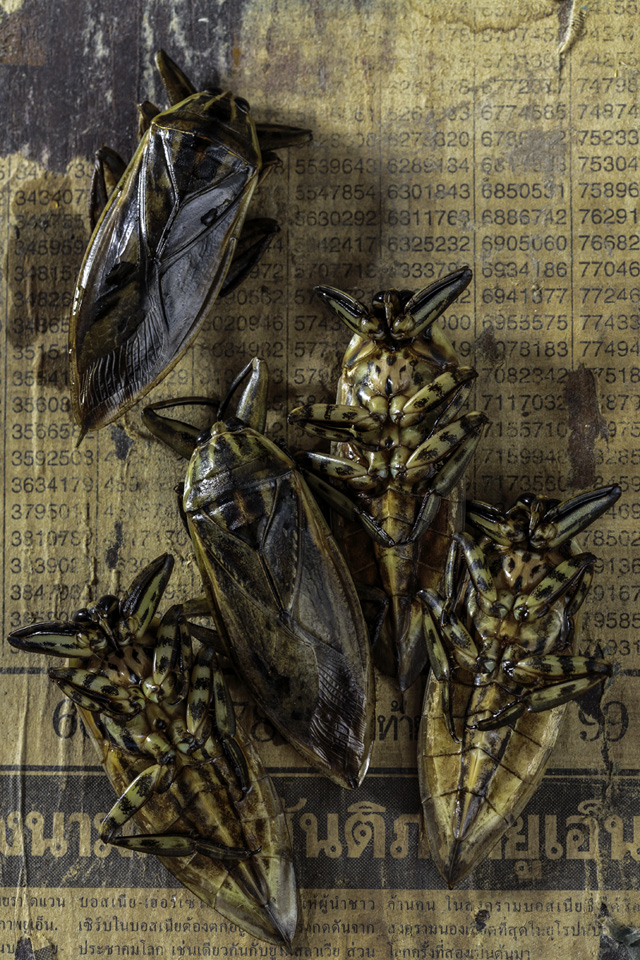
I’ve just spent the afternoon photographing maeng da edible giant water beetles, a popular ingredient in northeast Thai and Lao food.

You can learn more about maeng da on an earlier post here
Comment » | food, places, Travel
December 2nd, 2014 — 5:49am

A Lao laab is a beautiful thing. One of my favourite dishes.
Comment » | food, places
September 22nd, 2014 — 5:50am
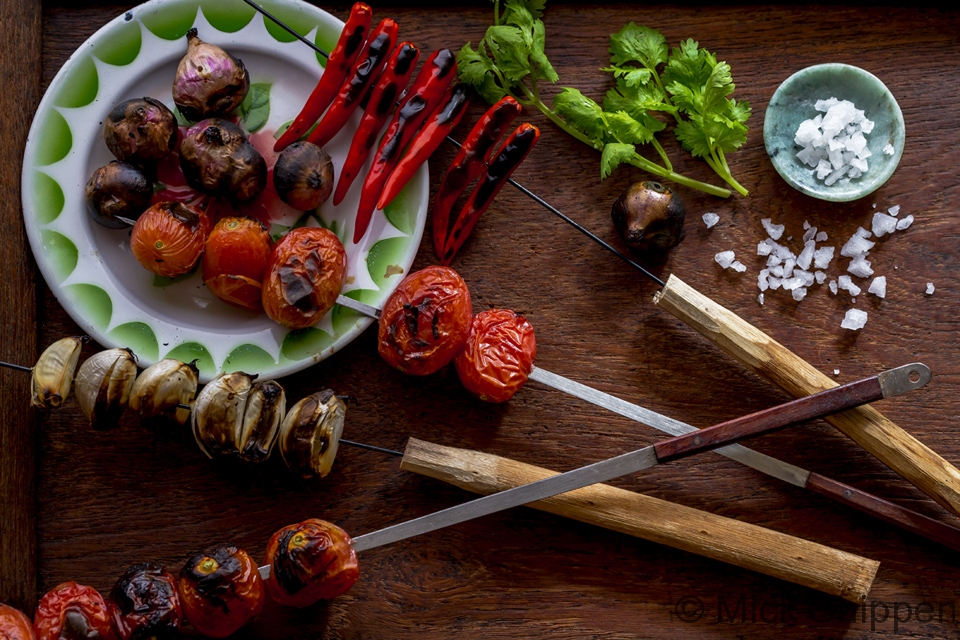
A couple of weeks ago, I promised Madam Pla Daek another post about Lao food. I’ve been extremely busy though with lots of traveling, so apologies for the delay but here you go…I hope these images get your craving Lao food and heading for the kitchen.
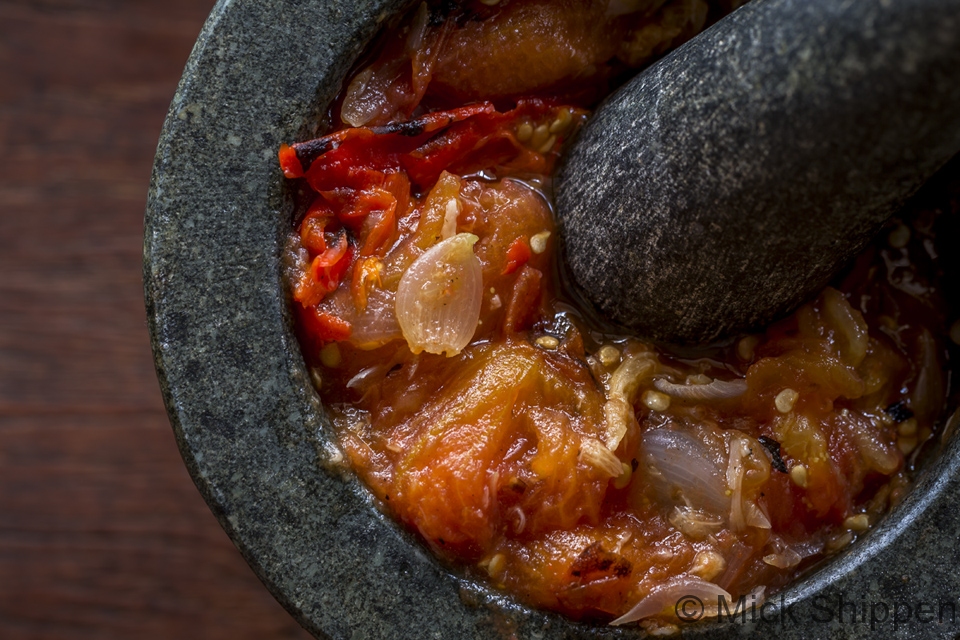
In Laos cuisine there are numerous jaew, dips and relishes served to add a flavour boost and texture to a meal. Thailand has its nam phrik, Mexico salsa and mole, in Lao its jaew, and no meal is complete without at least a couple.
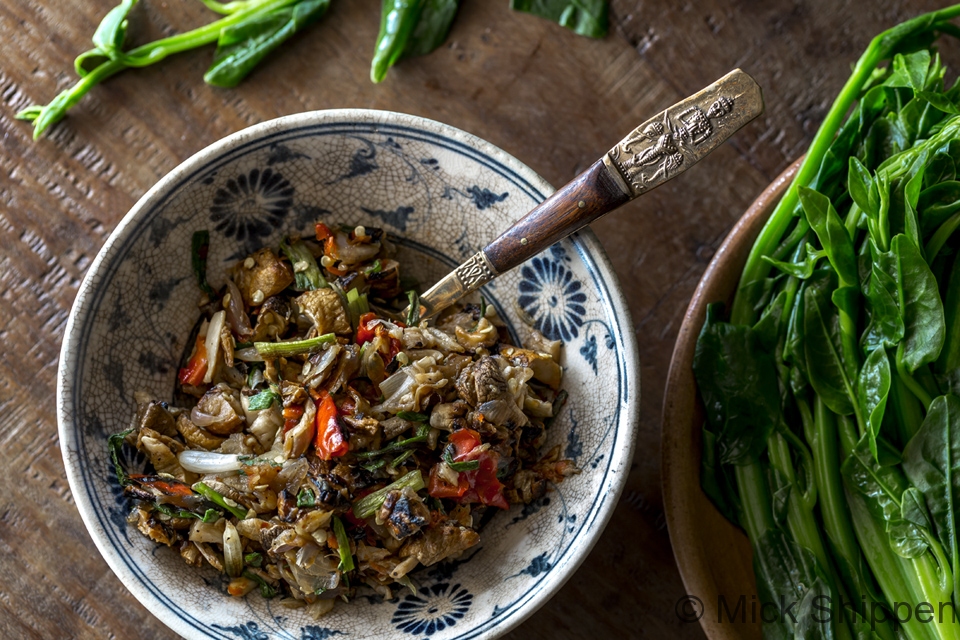
Most are very easy to make and many jaew revolve around a set of similar ingredients, namely chillies, shallots, garlic and tomato, with the addition of the star of the show. Most important when making any jaew is to grill the base ingredients over charcoal. Charring them until the are black adds an incredible smokiness and depth of flavour. Pounding with a granite pestle and mortar also gives nice chunky texture.
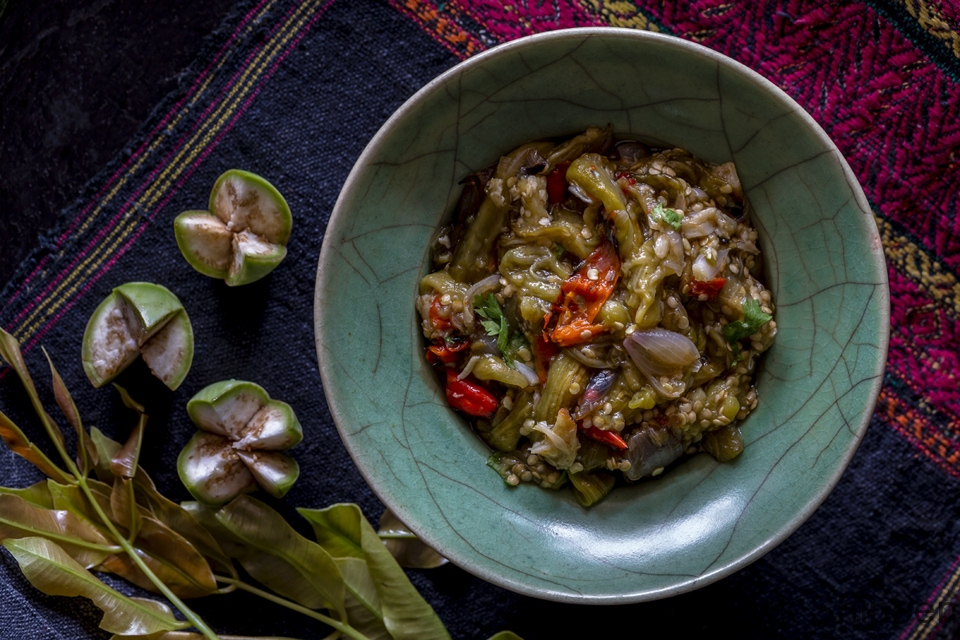
Several, such as mushroom, tomato and aubergines jaew are easily made wherever you are living in the world but there are other more obscure recipes which require Southeast Asian ingredients such as the one below made from nor ngare, a type of rattan.

There is also jaew maeng da made with grilled giant water beetles. If you are not from an insect eating country I realise you may find this a hard sell, but I urge you to try it.
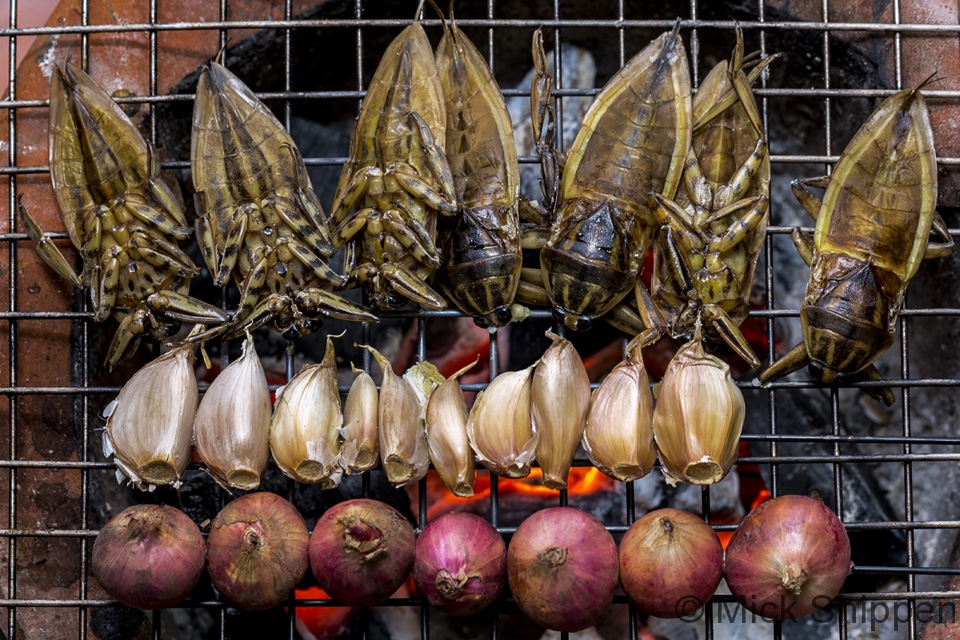
The inner flesh of roasted maeng da is added to a number of dishes including the jaew below where it has been mixed with grilled fish, herbs, and of course chillies. The beetles are large, fragrant and flavour is extraordinary. The closest I can get to describing it is like a sweet I used to eat as a kid called pear drops. Try it…then try it again. As with any unfamiliar food or flavour, give it time.
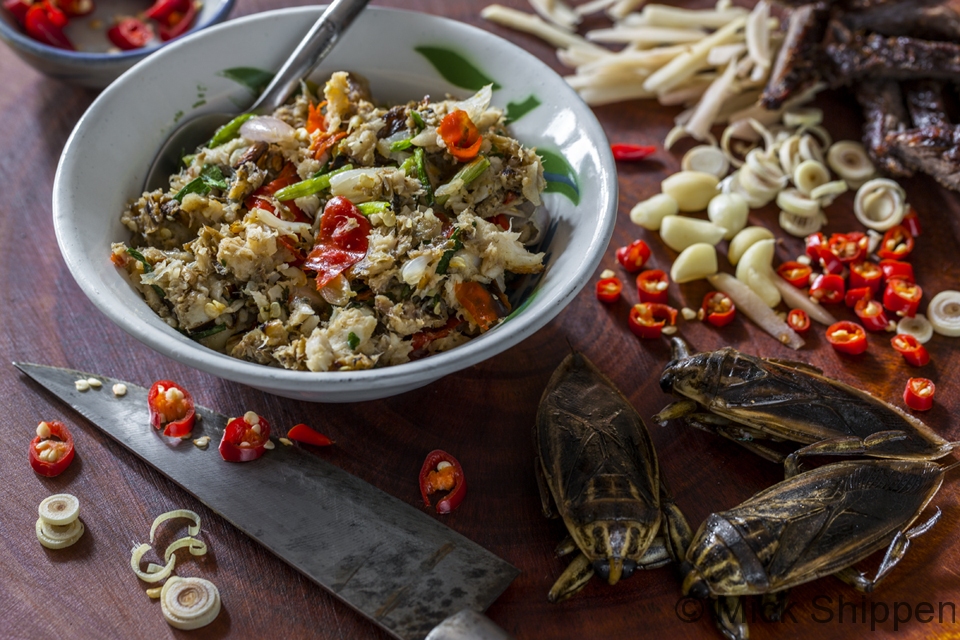
The most well known jaew is jaew bong, a sweet and sticky dip from northern Laos made with smoky dried chillies and buffalo skin. It’s absolutely delicious eaten with sin sawan, sun dried beef and ranks as one of my all time top beer snacks. More on these two at a later date.
Comment » | food, Travel












